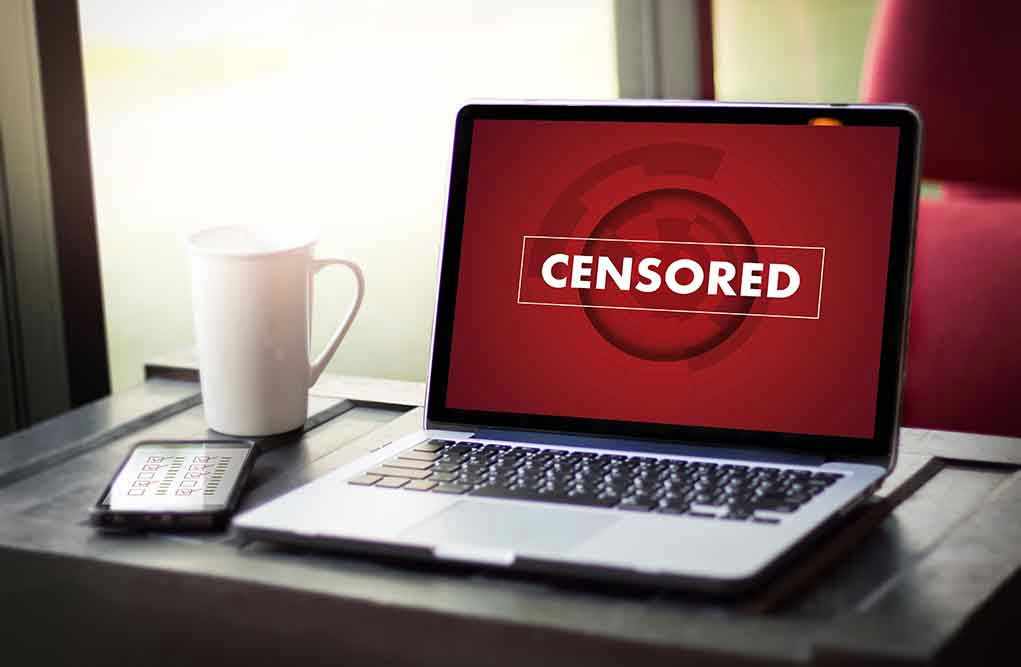
Wikipedia’s secretive blacklist of conservative news outlets wasn’t just speculation—it was revealed, line by line, live on Tucker Carlson’s show by Wikipedia’s own co-founder, Larry Sanger, leaving viewers questioning what “neutrality” really means in today’s digital age.
Story Highlights
- Wikipedia’s “perennial sources” blacklist bans citing conservative outlets like Fox News, Breitbart, and The Daily Caller for factual claims.
- Co-founder Larry Sanger guided Carlson through the blacklist live, exposing hidden editorial controls and sparking debate on bias.
- Wikipedia’s sourcing policy is shaped by anonymous editors and lacks transparent oversight.
- The segment reignited controversy about Wikipedia’s neutrality and its influence on public knowledge.
How Wikipedia’s Blacklist Came Into Public View
On The Tucker Carlson Show, Larry Sanger—a name that resonates with the origins of Wikipedia—sat across from Carlson and scrolled through the infamous “perennial sources” blacklist. Sanger explained that many conservative outlets were coded in red, meaning their reporting could not be cited as fact, no matter the story. Carlson’s incredulous reaction echoed the bewilderment of millions who rely on Wikipedia for seemingly unbiased information. This on-air walkthrough didn’t just expose a hidden policy; it forced a reckoning with the question of who really controls the world’s largest encyclopedia.
In the aftermath, clips of Sanger’s demonstration ricocheted across social media, conservative news sites, and online forums. The blacklist wasn’t just theoretical—it had real, documented consequences. Breitbart, The Epoch Times, Fox News, and The Federalist were among those flagged, their reliability dismissed by Wikipedia’s editorial community. The immediate public response was a swirl of anger, skepticism, and demands for reform. This wasn’t the first time Wikipedia faced accusations of bias, but the timing—amid a polarized media climate—turned a technical policy into a flashpoint for national debate.
The Editorial Machinery Behind Wikipedia’s Sourcing Policy
Wikipedia’s sourcing guidelines evolved over years of heated discussion among thousands of editors. The “perennial sources” list, which determines which outlets are deemed reliable or unreliable, is maintained through consensus—but consensus often reflects the loudest or most persistent voices. Larry Sanger’s critique centered on the lack of transparency and accountability in these decisions. While the Wikimedia Foundation provides infrastructure, it does not directly intervene in editorial choices, leaving power in the hands of a decentralized, sometimes opaque group of contributors.
Conservative media outlets have little recourse if they are blacklisted. Their reporting is effectively erased from Wikipedia’s factual narrative, while sources like The New York Times or CNN remain privileged. For millions who consult Wikipedia first, the blacklist subtly shapes what is considered “true” or “debunked.” Sanger and Carlson’s segment made visible the invisible hands guiding this process—raising new questions about how ideology, anonymity, and groupthink can influence supposedly neutral platforms.
Public Trust, Polarization, and the Future of Neutrality
The segment’s reverberations were immediate and profound. Conservative commentators seized on the blacklist as proof of systemic bias, while Wikipedia’s defenders argued it was a necessary safeguard against misinformation. The Wikimedia Foundation declined to comment directly, leaving editors to debate criteria and exceptions on internal forums. The perennial sources list remains public, but its rationale and enforcement are fiercely contested. Some editors call for more transparency, while others worry that relaxing standards would open the door to propaganda and falsehoods.
For readers—especially those 40 and older, who remember the days of encyclopedias on the shelf—the episode was a wake-up call. Wikipedia’s aura of neutrality is not an immutable fact but a product of evolving editorial norms. The risk is not just reputational damage for Wikipedia; it is the erosion of public trust in collaborative knowledge itself. If neutrality can be gamed, who decides what the public learns? Sanger’s warning, grounded in years of insider experience, suggests that radical transparency and open debate may be the only antidotes to hidden editorial control.
Sources:
WND report on the Carlson-Sanger episode and Wikipedia blacklist
Wikipedia biography of Tucker Carlson
AOL News coverage of the Carlson-Sanger segment




